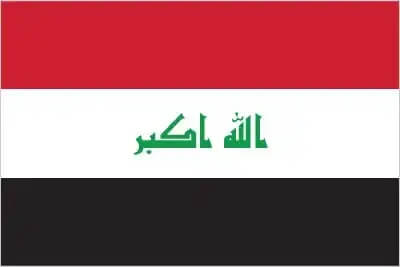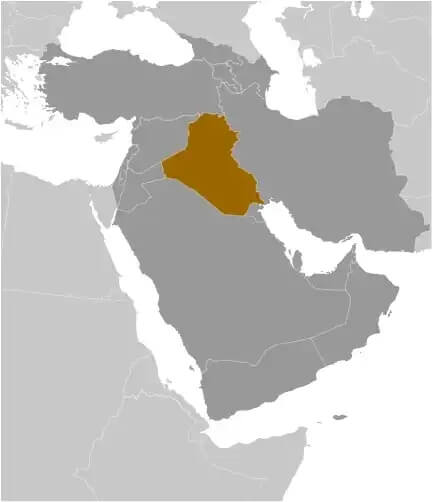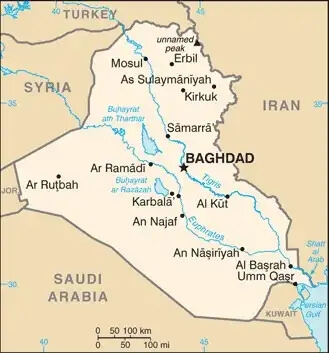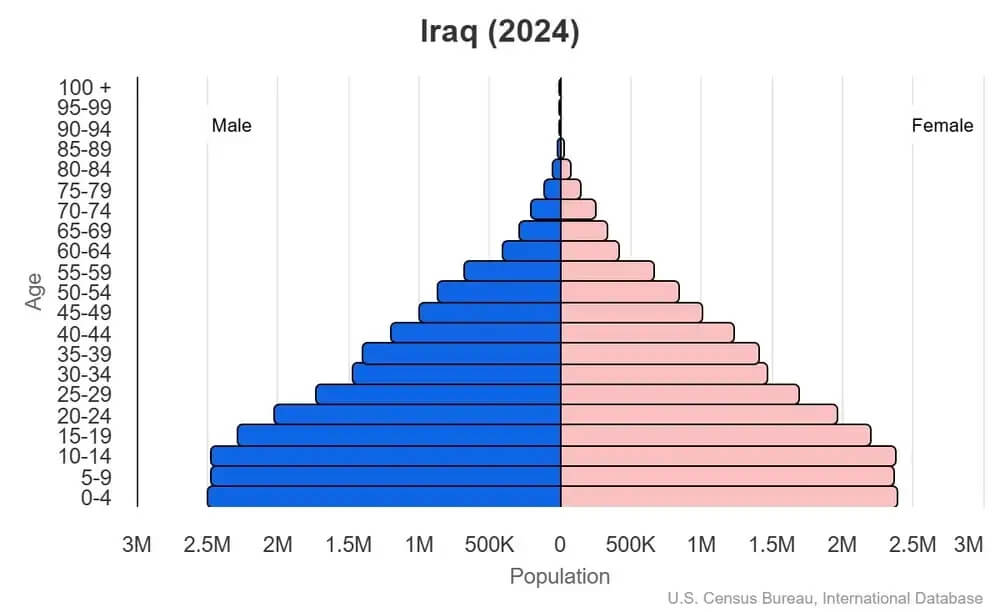World Book
Iraq
World Book Index
60


With a score of 60, the country is ranked 100th out of 158 countries in the World Book ranking. (more information)
Introduction
Formerly part of the Ottoman Empire, Iraq was declared a League of Nations mandate under UK administration in 1920. Iraq attained its independence as a kingdom in 1932 and was proclaimed a republic in 1958 despite ongoing authoritarian control. The invasion of Kuwait in 1990 led to a period of instability as the country tried to install a representative government.
Neighboring countries
Iran - Jordan - Kuwait - Saudi Arabia - Syria - Turkey
Geography
Area
total: 438,317 sq km
land: 437,367 sq km
water: 950 sq km
Climate
mostly desert; mild to cool winters with dry, hot, cloudless summers; northern mountainous regions along Iranian and Turkish borders experience cold winters with occasionally heavy snows that melt in early spring, sometimes causing extensive flooding in central and southern Iraq
Natural resources
petroleum, natural gas, phosphates, sulfur
People and Society
Population
total: 42,083,436 (2024 est.)
Ethnic groups
Arab 75-80%, Kurdish 15-20%, other 5% (includes Turkmen, Yezidi, Shabak, Kaka'i, Bedouin, Romani, Assyrian, Circassian, Sabaean-Mandaean, Persian)
Languages
Arabic (official), Kurdish (official); Turkmen (a Turkish dialect) and Syriac (Neo-Aramaic) are recognized as official languages where native speakers of these languages are present
Religions
Muslim (official) 95-98% (Shia 61-64%, Sunni 29-34%), Christian 1% (includes Catholic, Orthodox, Protestant, Assyrian Church of the East), other 1-4% (2015 est.)
Population growth rate
1.99% (2024 est.)
Government
Government type
federal parliamentary republic
Capital
name: Baghdad
Executive branch
chief of state: President Latif RASHID (since 13 October 2022)
head of government: Prime Minister Mohammed Shia al-SUDANI (since 27 October 2022)
Diplomatic representation in the US
chief of mission: Ambassador Nazar Issa Abdulhadi AL-KHIRULLAH (since 30 June 2023)
Diplomatic representation from the US
chief of mission: Ambassador (vacant); Chargé d'Affaires Ambassador Steven H. FAGIN (since 29 May 2025); note - Ambassador Fagin has served as U.S. Ambassador to the Republic of Yemen since 2022 and will remain accredited as Ambassador there during his time in Baghdad
Economy
Economic overview
highly oil-dependent Middle Eastern economy; fiscal sustainability subject to fluctuation in oil prices; rising public confidence in economic conditions; import-dependent for most sectors; persistent challenges of corruption, informal markets, banking access, and political fragility
Real GDP (purchasing power parity)
$585.887 billion (2024 est.)
$595.082 billion (2023 est.)
$592.017 billion (2022 est.)
Real GDP per capita
$12,700 (2024 est.)
$13,200 (2023 est.)
$13,400 (2022 est.)
Exports
$107.852 billion (2023 est.)
$127.079 billion (2022 est.)
$78.26 billion (2021 est.)
Exports - partners
China 33%, India 28%, USA 8%, Greece 5%, UAE 5% (2023)
Exports - commodities
crude petroleum, refined petroleum, petroleum coke, gold, natural gas (2023)
Imports
$81.179 billion (2023 est.)
$69.162 billion (2022 est.)
$50.707 billion (2021 est.)
Imports - partners
UAE 32%, China 20%, Turkey 18%, India 5%, USA 2% (2023)
Imports - commodities
refined petroleum, cars, broadcasting equipment, jewelry, gold (2023)
Human Development Index
The country's Human Development Index (HDI) is 0.695, ranking it 126th out of 193 countries tested. (more information)
World Happiness Report
The World Happiness Report ranked the country 95th out of 158 countries tested with a score of 5.216. (more information)



